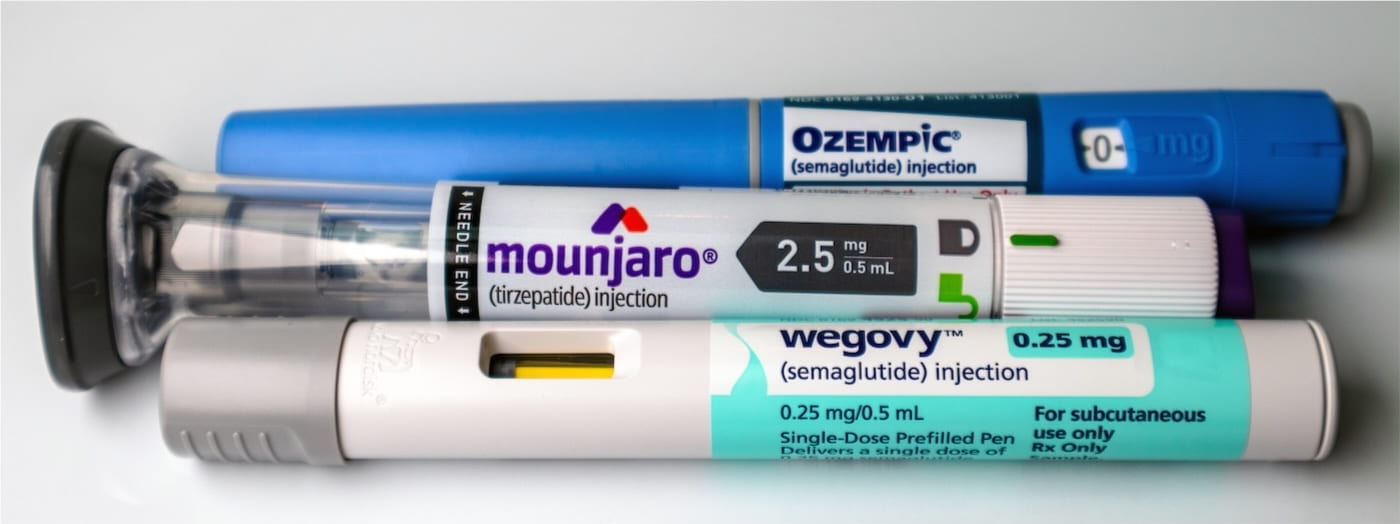Kirsten Fisch, MSN, RNC-MNN, IBCLC, LCCE Kirsten is a women's health nurse who specializes in high-risk pregnancy and postpartum care. She is certified in Maternal Newborn Nursing, a board-certified lactation consultant (IBCLC), and a Lamaze Certified Childbirth Educator. She works with women from conception through the postpartum period. Passionate about empowering women throughout their reproductive journeys, Kirsten combines evidence-based care with compassionate support to promote the health and well-being of mothers and babies.
If you’re taking a GLP-1 receptor agonist like Ozempic (semaglutide), Wegovy, Mounjaro (tirzepatide), or another weight loss or diabetes medication in the same class, you’re not alone in wondering: Is it safe to continue during pregnancy?
The short answer? No—GLP-1 medications are not currently recommended during pregnancy.
What Are GLP-1 Medications?
GLP-1 receptor agonists are a class of medications originally developed to treat type 2 diabetes. They work by mimicking a hormone called glucagon-like peptide-1, which helps regulate blood sugar, slow digestion, and reduce appetite. In recent years, they’ve gained popularity for their ability to support significant weight loss.
You may know them by brand names like:
- Ozempic® (semaglutide)
- Wegovy® (semaglutide for weight loss)
- Rybelsus® (oral semaglutide)
- Mounjaro® (tirzepatide)
- Saxenda® (liraglutide)
- Trulicity® (dulaglutide)

What We Know About GLP-1s and Pregnancy
There is limited human data on the safety of GLP-1 medications during pregnancy. Most safety information comes from animal studies, and those studies have shown that GLP-1 drugs can cause problems during fetal development, including:
- Fetal growth restriction
- Delayed skeletal development
- Increased risk of miscarriage
Because of this, the FDA categorizes most GLP-1 medications as “not recommended” during pregnancy. In fact, most drug labels specifically advise stopping these medications at least 2 months before trying to conceive due to their long half-life (the amount of time the drug stays in your body).
What If I Got Pregnant While Taking a GLP-1?
If you’ve already become pregnant while on a GLP-1 medication, don’t panic. Call your OB provider right away—they’ll help you determine the safest next steps.
You may need:
- To stop the medication immediately
- Additional monitoring to check on your baby’s development
- A referral to a maternal-fetal medicine (MFM) specialist, especially if you have underlying conditions like obesity or diabetes
It’s also important to be honest about when your last dose was taken, as this can help guide personalized recommendations.
Are There Alternatives If I Need Help Managing My Weight or Blood Sugar?
Yes, and your prenatal care team can help. Depending on your health history, alternatives may include:
- Insulin or metformin for blood sugar control
- Medical nutrition therapy with a registered dietitian
- Prenatal exercise and lifestyle programs designed specifically for pregnancy
- Referral to a high-risk pregnancy team for coordinated care
While weight loss is not recommended during pregnancy, maintaining a healthy weight gain within guidelines is important, especially for those who began pregnancy in a higher weight category.
Your Health Journey Doesn’t End With Pregnancy
While you may need to pause GLP-1 medications during pregnancy, this is just one chapter of your health journey. After birth, and once breastfeeding or other considerations are discussed with your provider, you can revisit your treatment plan and goals.
In the meantime, focus on what you can do: eat well, stay active, and lean on your care team. And remember, every healthy choice you make supports both you and your baby.

Kirsten Fisch, MSN, RNC-MNN, IBCLC, LCCE Kirsten is a women's health nurse who specializes in high-risk pregnancy and postpartum care. She is certified in Maternal Newborn Nursing, a board-certified lactation consultant (IBCLC), and a Lamaze Certified Childbirth Educator. She works with women from conception through the postpartum period. Passionate about empowering women throughout their reproductive journeys, Kirsten combines evidence-based care with compassionate support to promote the health and well-being of mothers and babies.



